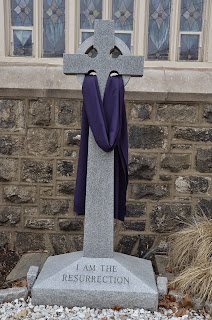A Time for Lament
It has been a hellish week.
Too many innocent victims. Too much unfathomable violence. Too much hate on far too public display.
Beneath it all is a spiritual disorder: Too many of us are letting our fears, our preconceptions, our talking points and maybe even our paranoia obscure the common humanity that we all share.
In the midst of our failure, Jesus weeps.
The Gospel of Jesus Christ is unequivocal: ALL lives matter. Yet Jesus’ identification with those who were marginalized and oppressed calls us to name those who are at imminent risk: BLACK lives matter. BLUE lives matter. This especially needs to be said by those of us who can trust that our white lives always matter.
There are powerful forces that use weeks like this to further distrust and division. It’s understandable that some feel pushed into an us-or-them mentality. Police officers and African-American males are especially on alert now. But this fear draws us deeper into our spiritual disorder.
Our tilted criminal justice system, the rampant economic inequality, our impulse to focus on small differences instead of the vast similarities we share — all of these we have come to accept (however grudgingly) as the status quo. In this week of innocent victims we remember Jesus, who was arrested with overwhelming force, and was executed for the crime of threatening the status quo of his time.
The message of Jesus’ life, death and resurrection is that we are all in this together. He consistently challenged systems of superiority, exclusion and oppression. He did not victimize others or play the victim, and he neither minimized suffering nor advocated “eye-for-an-eye” retaliation. Richard Rohr notes that Jesus rejected the natural human response to transmit our pain — which aptly describes our culture cycle of violence, outrage, divisive argument, then complacency followed by more violence — and instead chose to transform it, by holding it in himself on the cross.
A first step towards transforming the pain we feel this week is to lament, to sit with the pain and just acknowledge it for what it is. Experience the anger and frustration, and recognize our powerlessness in the face of pain.
By stepping back we can see that by holding the world’s pain Jesus transformed an unjust execution into the path to a new way of life. And by looking past the urgent rush to criticize and co-opt — which dissipates just as quickly leaving us where we were — and bringing a different energy to the struggle, we gird ourselves for the slow, backbreaking work of bending the moral arc of our society towards justice.


Comments